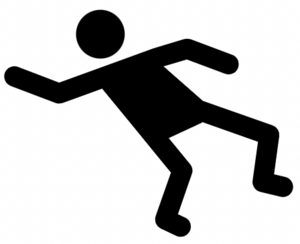The 10-Minute Rule for Dementia Fall Risk
Wiki Article
The 6-Second Trick For Dementia Fall Risk
Table of ContentsDementia Fall Risk Things To Know Before You BuyDementia Fall Risk Things To Know Before You BuyThe Best Guide To Dementia Fall RiskIndicators on Dementia Fall Risk You Should Know
A fall threat assessment checks to see how most likely it is that you will certainly drop. The analysis normally includes: This includes a series of inquiries regarding your total health and if you have actually had previous drops or troubles with balance, standing, and/or walking.Interventions are referrals that may reduce your risk of dropping. STEADI consists of 3 actions: you for your risk of falling for your threat aspects that can be enhanced to try to stop drops (for example, equilibrium issues, damaged vision) to lower your threat of dropping by utilizing efficient methods (for example, providing education and learning and resources), you may be asked several questions consisting of: Have you fallen in the past year? Are you fretted concerning falling?
You'll rest down once more. Your service provider will check the length of time it takes you to do this. If it takes you 12 secs or more, it may indicate you go to higher risk for an autumn. This examination checks stamina and equilibrium. You'll rest in a chair with your arms crossed over your upper body.
Move one foot halfway onward, so the instep is touching the big toe of your various other foot. Move one foot fully in front of the other, so the toes are touching the heel of your other foot.
3 Easy Facts About Dementia Fall Risk Described
Many drops occur as a result of several adding factors; therefore, taking care of the threat of dropping starts with recognizing the factors that add to fall threat - Dementia Fall Risk. A few of the most pertinent threat factors include: History of previous fallsChronic clinical conditionsAcute illnessImpaired stride and equilibrium, reduced extremity weaknessCognitive impairmentChanges in visionCertain high-risk medications and polypharmacyEnvironmental variables can additionally enhance the danger for falls, consisting of: Insufficient lightingUneven or harmed flooringWet or unsafe floorsMissing or damaged hand rails and grab barsDamaged or incorrectly equipped devices, such as beds, wheelchairs, or walkersImproper use assistive devicesInadequate guidance of the individuals staying in the NF, including those who display hostile behaviorsA successful loss risk administration program requires a comprehensive professional evaluation, with input from all participants of the interdisciplinary team

The care strategy need to also include treatments that are system-based, such as those that advertise a safe atmosphere (suitable lights, hand rails, get hold of bars, and so on). The performance of the treatments must be examined occasionally, and the care strategy changed as needed to reflect modifications in the fall threat assessment. Executing an autumn threat management system making use of evidence-based ideal method can decrease the occurrence of drops in the NF, while limiting the potential for fall-related injuries.
About Dementia Fall Risk
The AGS/BGS standard suggests evaluating all grownups matured 65 years and older for fall risk yearly. This screening contains asking patients whether they have actually fallen 2 or even more times in the past year or looked for clinical interest for a loss, or, if they have actually not fallen, whether they feel unsteady when strolling.Individuals that have actually fallen as soon as without injury ought to have their balance and stride reviewed; those with gait or equilibrium irregularities should obtain extra assessment. A history of 1 fall without injury and without stride or balance issues does not necessitate additional analysis past you could try these out ongoing yearly fall danger testing. Dementia Fall Risk. A fall risk evaluation is called for as part of the Welcome to Medicare evaluation

The Best Guide To Dementia Fall Risk
Recording a falls background is one of the high quality indications for loss prevention and administration. browse this site copyright medications in specific are independent predictors of falls.Postural hypotension can typically be reduced by lowering the dose of blood pressurelowering medicines and/or quiting drugs that have orthostatic hypotension as a negative effects. Use above-the-knee assistance tube and sleeping with the head of the bed raised might likewise minimize postural decreases in blood pressure. The recommended elements of a fall-focused health examination are received Box 1.

A pull time above or equivalent to 12 seconds recommends high fall threat. The 30-Second Chair Stand examination continue reading this analyzes lower extremity stamina and balance. Being not able to stand up from a chair of knee height without utilizing one's arms suggests enhanced autumn risk. The 4-Stage Balance test assesses static balance by having the individual stand in 4 settings, each progressively extra challenging.
Report this wiki page